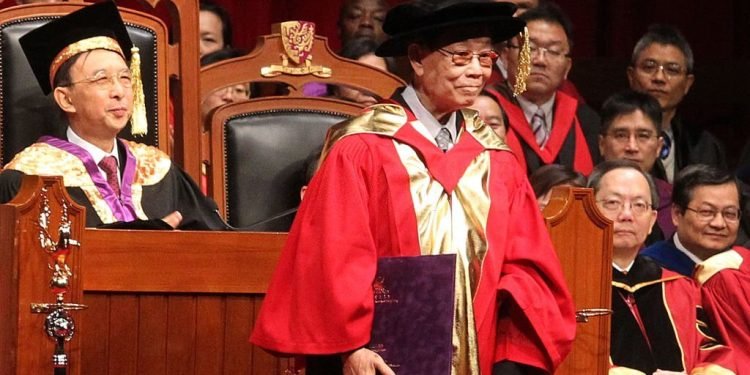Joseph Koo, a notable music composer during the heyday of Hong Kong cinema, passed away in Vancouver, Canada. He was 91.
Local media report his death as occurring on Tuesday, January 3, 2023, although there is no cause for death.
Koo Ka-Fai, born on February 23, 1931, in Guangzhou, China, emigrated to Hong Kong in 1948 with his musical and academic family.
Koo worked mostly in Hong Kong’s film, television, and pop music sectors. And even after moving to Canada in the 1990s, he kept in touch with the Hong Kong business community.
Koo, whose sister Koo Mei was a well-known recording artist in her own right, began playing the piano when he was a little child and writing songs for her. Later, he started his band and played live, performing at places like Hong Kong’s Luk Kwok Hotel.
His sister sang “Dream” in the 1961 Shaw Brothers film “Love Without End,” which served as his debut film composition. The success of the song and the movie led Hong Kong film magnate Sir Run Run Shaw to fund his formal musical study at Boston’s Berklee College.
Returning to Hong Kong, Koo worked for Shaw Brother’s enterprises and Shaw’s rival Golden Harvest.
For his work on the 1965 musical comedy “The Dancing Millionairess” by The Shaw Brothers, Koo received a Golden Horse Award, one of the most coveted accolades in Chinese cinema. He composed the music for “Way of the Dragon” and “Fist of Fury,” two of the six Bruce Lee films.
More recently, Koo wrote the music for Jia Zhangke’s 2017 film “Ash Is Purest White” and Ray Yeung’s 2006 film “Cut Sleeve Boys.”
Numerous national and international accolades have to given to Koo for his work and career. In 1982, Koo was awarded an MBE by the British government. Koo to given a Bronze Bauhinia Star in 1988 and a Gold Bauhinia Star in 2015, while Hong Kong was governed by China starting in 1997. During the 2010 Hong Kong Arts Development Awards, the Hong Kong Arts Development Council presented him with the Life Achievement Award.
“Joseph Koo’s works are timeless masterpieces that have improved the lives of Chinese people worldwide and played a key role in Hong Kong people’s daily lives over the years. From one generation to the next, he will carry along his spirit and the enduringly moving music he composed. We will remember him with affection, Kevin Yeung, the secretary for culture, sports, and tourism in Hong Kong, said in a statement on Wednesday.
